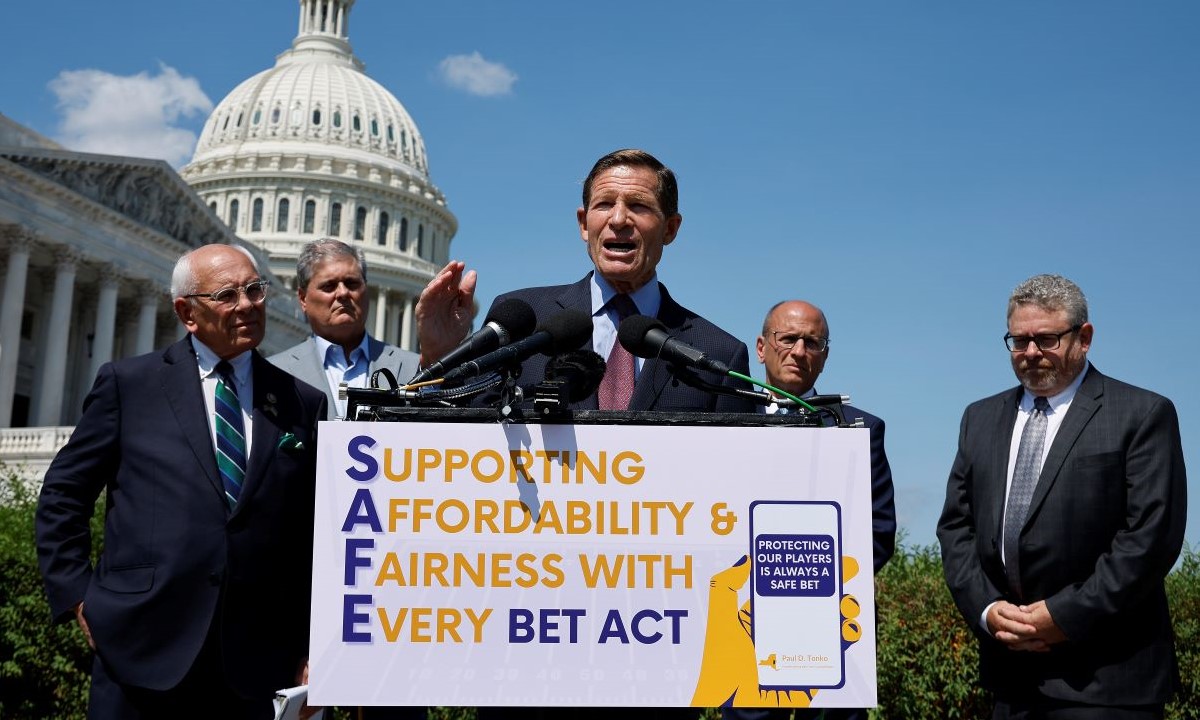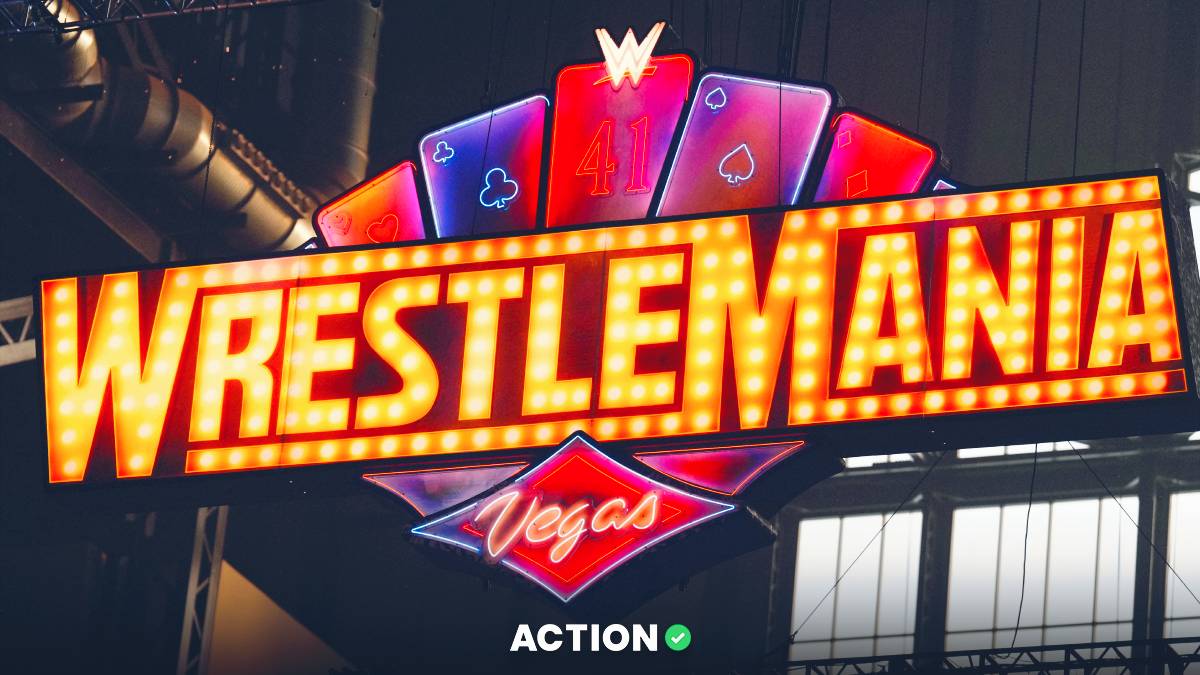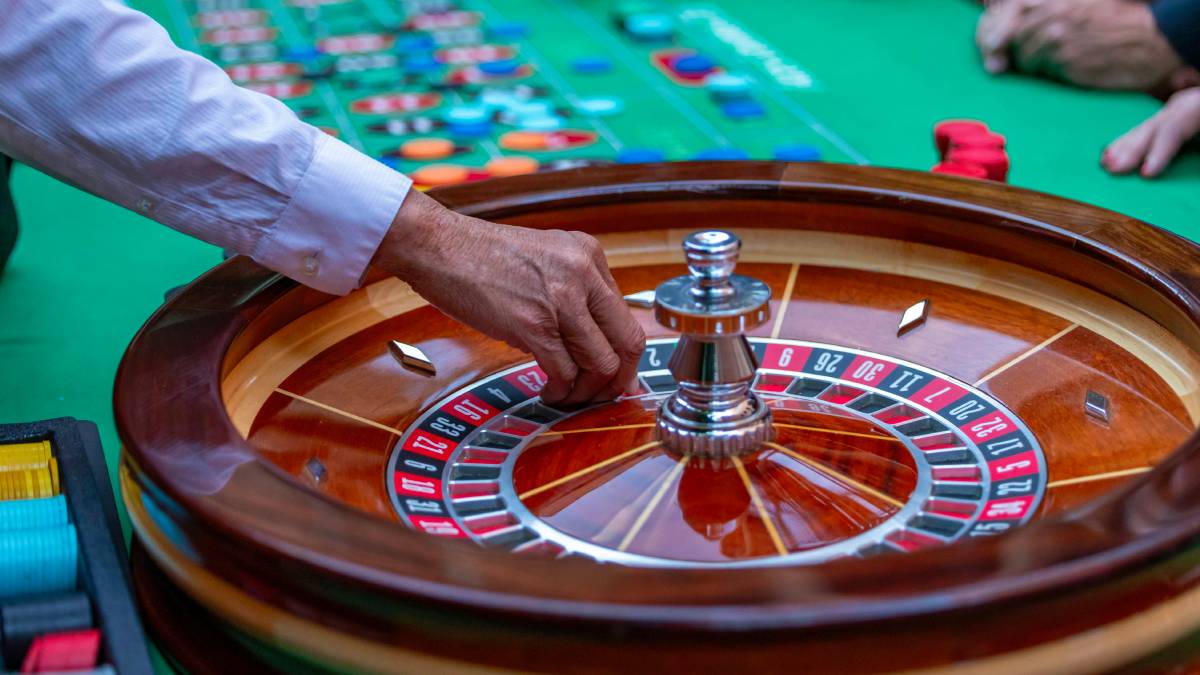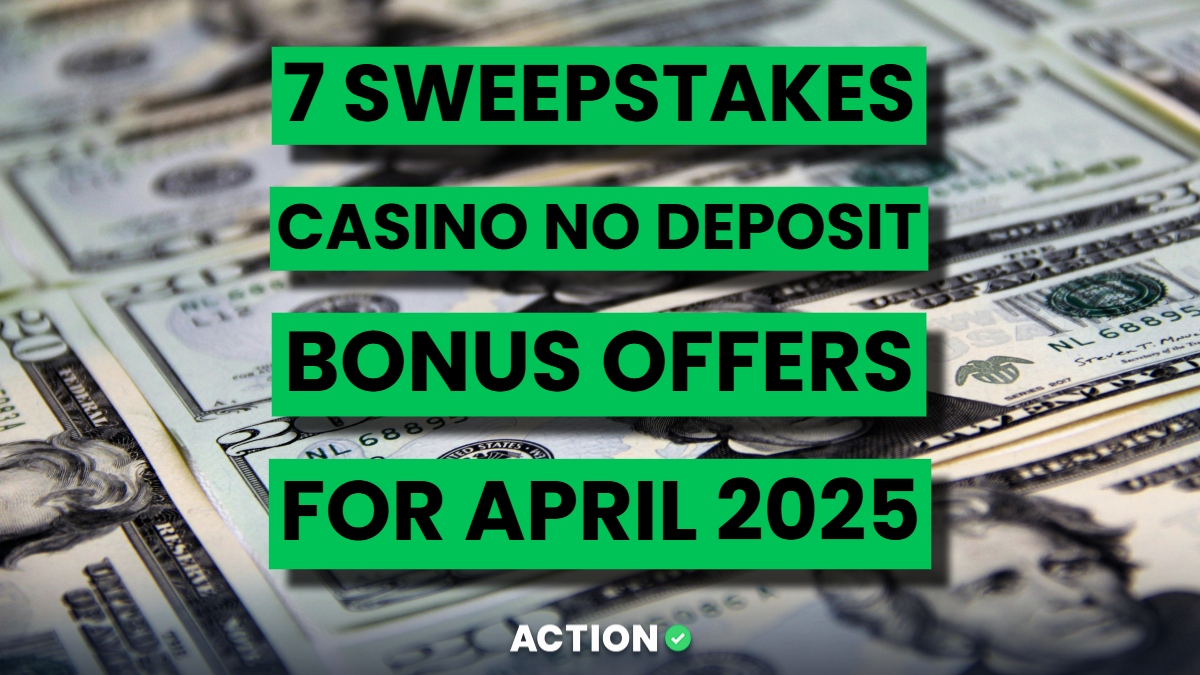Three decades ago, before the advent of mobile sports betting, the throes of gambling addiction could be seen through the eyes of railbirds at the racetrack and hardened horseplayers in a queue at a squalid off-track betting parlor.
As the NFL begins its seventh season since the Supreme Court's historic PASPA decision, times have changed. Against the backdrop of the Capitol building in Washington, D.C., New York Congressman Paul Tonko recalled a meeting with a compulsive gambler whose savings eroded with frequent trips to the local OTB.
Tonko, an eight-term Democrat, held a smartphone in his left palm to articulate the shifting dynamics.
"He reminded me that each and every day, every hour, those that may have that addictive gene have the machinery right in their hand," said Tonko, as he used his phone as a pointer to deliver his point.
On Thursday, Tonko and Sen. Richard Blumenthal (D – Connecticut) introduced The SAFE (Supporting Affordability and Fairness With Every) Bet Act, a bill with minimum federal restrictions on sports betting. The proposed legislation does not seek to create a federal ban on sports wagering, but instead bans practices designed to exploit those who legitimately want to gamble, Blumenthal emphasized.
The act contains three pillars, with provisions on advertising, player affordability and targeting through artificial intelligence (A.I.). As with numerous industries in the private sector, A.I. has accelerated the pace at which participating companies — in this case, sportsbooks — can conduct business.
While A.I. serves as a useful tool for sportsbooks to monitor behavioral markers associated with problem gambling, the legislators are concerned with the far-reaching data privacy implications of the technology. As Tonko moves to gather support for the legislation, the debate is expected to be vigorous.
A.I. Under the Microscope
The announcement Thursday came one day after the Massachusetts Gaming Commission held a closely watched hearing on sports wagering limits.
One topic at the hearing focused on whether operators use A.I. to make decisions on whether to limit individual bettors. Despite the proliferation of A.I., HoldCrunch CEO Tom Johnson believes there will still be a place for human traders given the unpredictable nature of sports. Although BetMGM employs a trading team for decisions on bettor limits, an attorney for the venture indicated that he is unsure on the extent of A.I. in the process.
Within Tonko's 50-page draft, there are three prohibitions centered on A.I. The act restricts sportsbooks from using A.I. to track customers, from creating promotions that target a certain individual and from offering so-called "microbets" on various plays during the course of a game.
In the days leading up to the Super Bowl, both legislators appeared on a piece by ESPN's "Outside The Lines" on the changing landscape of the sports betting ecosystem. The final part ran on the same day that "60 Minutes" aired a segment examining the confluence of advertising, A.I. and promotional inducements on the psyche of incipient sports bettors.
The "60 Minutes" episode featured an appearance from Matt Zarb-Cousin, an advocate of responsible gambling in the U.K. In an interview with Jon Wertheim, Zarb-Cousin indicated that he obtained data from Flutter which showed that the company used "93 different data points" on behavioral tendencies of a customer. The data ranged from deposit times to advertising inducements. While Flutter is the parent company of FanDuel, his public information request covered the company's entities in the U.K.
Chatting to @jon_wertheim about how gambling industry practices will impact the American public. This is why the @fairergambling campaign is so badly needed pic.twitter.com/rOW6AD9PTM
— Matt Zarb-Cousin (@mattzarb) February 5, 2024
Weeks before the launch of ESPN BET last fall, Chalkline Sports co-founder Daniel Kustelski discussed the explosion of promotional offers through A.I. Kustelski, a passionate Minnesota Vikings fan, is a resident of Kentucky. Without bet tracking, it may be nearly impossible for a sportsbook to learn of his allegiance to the Vikes. But if fans such as Kustelski wager often on the Purple and Gold, certain patterns emerge.
For one, a sportsbook can engage a customer by sending personalized alerts on Justin Jefferson props, a practice repeated with other star players throughout the league. For Thursday night's Bills-Dolphins matchup, Tyreek Hill had odds of -130 to record an anytime touchdown. A Dolphins fan with a proclivity for wagering on the speedy wideout may receive the prop at a premium to the market, with odds of, say, +180. If signed into law, the SAFE Bet Act will prohibit such enticements.
Also on Thursday, Blumenthal announced that a Senate Judiciary subcommittee will convene a hearing on Sept. 17 that will explore guardrails which may protect consumers from the harms of A.I. Blumenthal previously held a May 2023 hearing, entitled “Oversight of AI: Rules for Artificial Intelligence," that included testimony from OpenAI CEO Sam Altman.
Heavy Pushback
Two days before the Super Bowl, FanDuel CEO Amy Howe criticized mainstream networks for what she described as narrow reporting on the subject. In particular, Howe expressed disappointment with the lack of coverage on the perils of the offshore market.
Leading up to the Super Bowl, Howe described the considerable investment FanDuel made into research on responsible gambling. Howe, specifically, is proud of the company's advances in utilizing A.I. to identify "problematic play."
Since the nation's highest court overturned a federal ban on sports betting, leading operators have invested hundreds of millions, if not billions, of dollars in innovating their products. A Washington, D.C.-based nonprofit, iDEA Growth, represents the legislative and regulatory interests in the online entertainment space, including sports betting. The association shared some of Howe's views on the unregulated market, arguing that restrictions on products that "ensure the safety of players" may increase the risk that customers will head to illegal markets.
"The bill’s prohibition on certain promotions and the use of A.I. technologies ignores the importance of innovation in creating a secure and safe environment for sports bettors," iDEA Growth wrote in a statement.
The group was not the only one that reacted immediately on Thursday with criticism of the proposed legislation. The American Gaming Association (AGA), the nation's premier national trade group for the U.S. casino industry, described the bill as "heavy-handed federal prohibitions" that may neutralize years of work from state legislatures and regulators.
Do you know the difference between problem gambling and responsible gambling? You'd be surprised how many people don't and how much harm that does, but @AmericanGaming has come up with a potential remedy. (@ActionNetworkHQ)https://t.co/qa8nJ8kRVl
— Mike Seely (@mdseely) September 11, 2024
State officials, they contend, devoted inordinate resources to developing "thoughtful frameworks unique to their jurisdictions."
Nevada Rep. Dina Titus characterized the act as "well-intentioned" but described the proposal to restrict methods by which customers can place a bet as "a misguided approach."
'Roll Up Our Sleeves'
There are indications that formal efforts needed to advance the bill will not begin until 2025 at the earliest.
The announcement Thursday was held nearly seven years after a post-PASPA Congressional hearing on the topic. The 2018 hearing featured representatives from the NFL, the AGA, state regulators and responsible gambling coalitions, among others.
Tonko could convene top North American pro sports league commissioners and sportsbook executives for a subsequent hearing next year. A CEO from a top-five sportsbook expressed hesitation to appear at such a hearing, informing Action Network last spring that he is not in favor of federal regulation of sports betting.
The post-PASPA hearing occurred several months before Senators Chuck Schumer and Orrin Hatch introduced the Sports Wagering Market Integrity Act of 2018. The bill, which failed to receive a vote, sought to create a national clearinghouse that would allow leagues, regulators, operators and law enforcement to share data on suspicious wagering activity. There are aspects of the SAFE Bet Act that mirror the bill crafted in 2018, a legislative source told Action Network. For instance, both drafts authorized the federal government to create a national self-exclusion list for legal sports betting.
When asked by Action Network Thursday if Schumer will support the new legislation, a spokesperson for the Senate Majority Leader did not respond.
Despite Schumer's hectic schedule, he may find space on his calendar for Tonko, since both represent the Empire State. Schumer may also be extremely interested in curbing rates of compulsive gambling. A witness at the 2018 hearing testified on the importance of procuring funding for assistance to those addicted to sports betting, an issue that problem gambling advocates continually highlight. Tonko shared a gripping anecdote of a bettor who carried his phone into the shower at 5 in the morning to place bets on sporting events outside the U.S.
An overarching issue for legislators to grapple with surrounds the prevalence on when cases of problem gambling rise to addiction. According to the Mayo Clinic, compulsive gambling is defined as the “uncontrollable urge to keep gambling,” despite the toll it takes on your life. A 2018 U.K. government survey found that only about 0.5% of the population reached the threshold for consideration of problem gambling.
Mark Gottlieb, the executive director of Northeastern University School of Law's Public Health Advocacy Institute, indicated that protecting vulnerable consumers should be prioritized over microbets and in-game parlays.
"While some may consider the SAFE Bet Act to be a long shot, it is, as its name suggests, a safe bet for public health," he noted at the press conference.
Tonko did not set a timetable on Thursday for potential passage of the act.
“We need to roll up our sleeves and inform, educate and encourage people to join us in this effort," he said.



















































